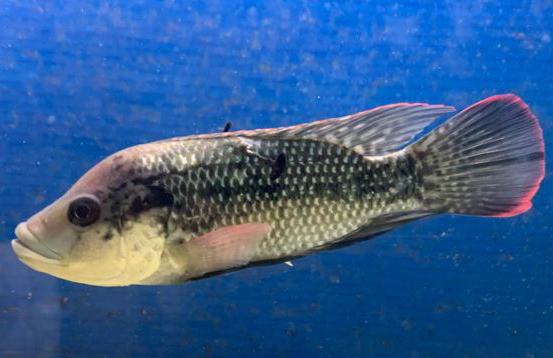MENU
- Home
- Okinawa Churashima Foundation Research Institute
- Studies of Marine Animals
- Research activity report
- Paper published on the sterilization of male tilapia to reduce population.

Research on marine organisms
Paper published on the sterilization of male tilapia to reduce population.
Mozambique tilapia are native to Africa. They are an invasive species in Okinawan waters and their effects on the local ecosystem is causing concern.
The Okinawa Churashima Foundation conducted an experiment to reduce the local population of tilapia by releasing infertile males. Young male tilapia were temporarily reared at high temperatures to cause them to become infertile. As tilapia spawn in pairs, releasing infertile males into the wild was predicted to be effective.
For three years, researchers reared and released sterilized tilapia into the artificial pond inside Ocean Expo Park. The results showed that it was possible to sterilize most of the males that hold breeding territories. However, there was no clear evidence of any reduction in the population size, and the conclusion was that that there was no significant effect in releasing sterilized males. This trial was the first attempt to reduce population size using infertile males in vertebrates, and the effect was not what was expected.
We believe this result shows the high reproductive ability of tilapia which underlines the challenges of eradicating this non-native species.
Okinawa Churashima Foundation will continue to conduct scientific research to solve the various environmental issues facing Okinawa including the Yanbaru region which is a natural UNESCO World Heritage Site.

外来種カワスズメ(ティラピア)
Authors
Shin-ichiro OKA, Ryo NOZU, Kei MIYAMOTO, Taketeru TOMITA, Nozomi HANAHARA, Chihiro YAMAUCHI, Takahide SASAI and Masaru NAKAMURA(Bold letters: the Churashima Foundation Staff)
Title
A trial to control invasive Mozambique tilapia populations using the sterile-male release technique in the artificial ponds on Okinawa
Journal
Biological Magazine Okinawa
Copyright (c) 2015 Okinawa Churashima Foundation. All right reserved.

